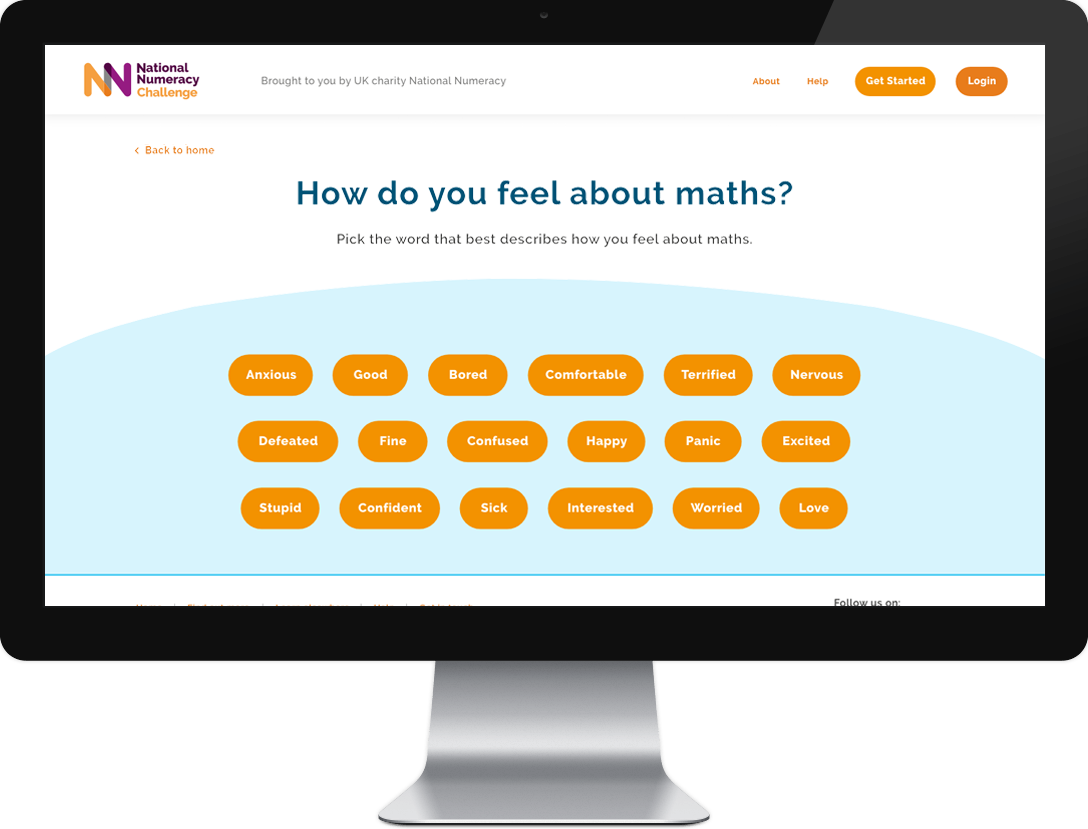Now that I know I can do maths, the world is my oyster. It has really promoted wellbeing and confidence within me.
Deb, Healthcare Assistant at NHS trust
The ongoing Covid-19 crisis makes getting into work, getting on at work and managing home finances more challenging than ever. At present, many of us are uncertain about how to progress with our career or education plans and are looking to better manage our home finances or help our kids catch up with schoolwork.Boosting number skills is a great way for us to become better equipped to deal with life changes, but some people see the word “maths” and freeze. By spreading the message amongst your staff that it is okay to feel uneasy about maths, and providing them with these resources, you can support them in boosting their skills and help them feel supported by the organisation, knowing that however they feel about maths, they are not alone.
Maths anxiety, or a fear of maths, is extremely common. Research by National Numeracy in 2019 found that 25% of people would be put off applying for a job if it listed “using numbers and data” as a requirement; a figure which rose to 30% for women. The thought of doing maths can often bring about feelings of anxiety in people such as feeling panicked, an increased heart rate, nausea, and avoidance of situations which involve maths.
Although it can limit performance in certain situations and contexts, it is important to remember that maths anxiety is not linked to intelligence or ability.That being said, the stress associated with such anxieties can affect performance in many situations resulting in an individual believing that their maths ability is “fixed” and cannot be improved.
For people with maths anxiety, it is important to encourage a “growth mindset” as a more effective way of thinking, by fostering the belief system that it is possible for anyone to improve not only their skills, but their confidence.
If you could bottle the feeling it gives you, people would buy it.
Stacey, Workforce Transformation Manager at NHS trust
By being aware of the high prevalence of maths anxiety and low confidence amongst the workforce, and allocating time to talk about this with them, it encourages staff to feel more comfortable discussing their feelings about maths Often we find that when people realise how common it is to feel anxious about maths, this unlocks the door to creating a more open and honest discussion. The subject has become a taboo for many due to their experiences at school, where they may have been made to feel exposed if they struggled, but an open and inclusive conversation can help people overcome this feeling.
For many, looking at how they use maths everyday can help establish a belief in their own abilities.For example, we often use maths without thinking when telling the time, balancing budgets, baking a cake, or even planning a holiday. If people can recognise that they can do this, they recognise that they do have some maths skills already. Being aware of the value of numeracy skills can also encourage people to give it a go.
As with many things, the more that someone practises their maths skills, the more confident they will become and the more natural it’ll feel. It’s okay to make mistakes or find it difficult – that is all part of the learning process.






